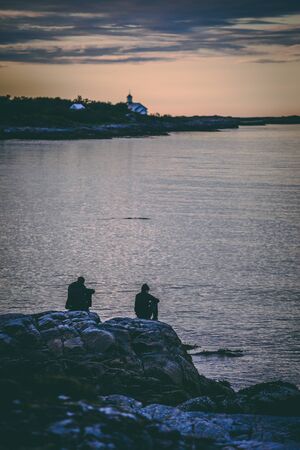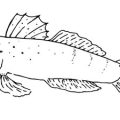1. Respect Personal Space on the Water
One of the first things every new angler should learn is how to respect personal space while fishing. Whether youre casting off from a boat, pier, or the shoreline, giving fellow anglers enough room is key to keeping the experience enjoyable for everyone. In American fishing culture, theres an unspoken rule about not crowding others—its all about being courteous and allowing each person their own space to fish comfortably.
If youre unsure how much distance is appropriate, heres a general guide:
| Fishing Location | Recommended Distance |
|---|---|
| Boat Fishing | At least 50-100 feet between boats (more if trolling) |
| Pier Fishing | Leave at least one rod-length between you and others |
| Shoreline or Bank Fishing | Keep about 20-30 feet of space unless invited closer |
Always observe your surroundings before setting up. If someone’s already fishing in a spot, avoid casting too close to them or walking through their line of sight. If you’re ever in doubt, just ask! Most anglers will appreciate the courtesy and may even offer some helpful tips or conversation.
Respecting space not only helps prevent tangled lines and accidents but also shows that youre considerate of other peoples time outdoors. It’s one of the simplest yet most important parts of good fishing etiquette.
2. Keep It Clean: Leave No Trace
When youre out enjoying a day on the water, its important to respect nature and keep your fishing spot clean. One of the most important rules for any angler—especially beginners—is to leave no trace behind. That means taking responsibility for all your trash, gear, and even bait remnants.
Be Responsible for Your Waste
Always bring a small trash bag or container with you to collect any waste you create during your fishing trip. This includes food wrappers, drink bottles, and especially fishing-related items like old line or plastic bait containers. These materials can harm wildlife and pollute waterways if left behind.
Proper Disposal Matters
Fishing lines and hooks are dangerous to animals if not disposed of properly. Birds, fish, and other wildlife can get tangled in leftover line, leading to injury or death. Use designated disposal bins when available, or take used lines home to discard them safely.
What to Pack for Clean Fishing
| Item | Purpose |
|---|---|
| Trash Bag | Collect general waste like wrappers and bottles |
| Line Container | Safely store used fishing line until you can dispose of it |
| Reusable Water Bottle | Reduce single-use plastic waste |
| Towel or Rag | Clean hands without using disposable wipes |
Leave It Better Than You Found It
If you see litter left by others, consider picking it up and throwing it away. Being a responsible angler means not only cleaning up after yourself but also helping preserve natural spaces for everyone to enjoy. A clean shoreline is better for the environment—and makes fishing more enjoyable for everyone.
![]()
3. Know and Follow Local Fishing Regulations
Before you cast your line, its important to understand the fishing rules in the area you’re visiting. These regulations are put in place to protect fish populations, maintain healthy ecosystems, and ensure everyone has a fair and enjoyable experience. Ignoring them isn’t just poor etiquette—it can also lead to fines or losing your fishing privileges.
Why Are Regulations Important?
Fishing laws aren’t meant to ruin your fun—they’re there to make sure we all get to enjoy fishing for years to come. Whether youre at a lake, river, or coastal pier, local rules help:
- Protect endangered species
- Prevent overfishing
- Support sustainable fish populations
- Promote fair access for all anglers
Key Things to Check Before You Go Fishing
Different states—and even different bodies of water—can have their own unique set of rules. Here’s what every first-time angler should look into:
| Regulation Type | What It Means | Why It Matters |
|---|---|---|
| Fishing License | You may need a state-issued permit to fish legally. | Keeps programs funded and supports conservation efforts. |
| Catch Limits | A limit on how many fish you can keep per day. | Prevents overharvesting and ensures enough fish for others. |
| Size Restrictions | Certain fish must be a minimum or maximum length. | Allows young fish time to grow and reproduce. |
| Seasonal Restrictions | Certain species can only be caught during specific times of year. | Protects spawning fish and helps population growth. |
| Bait & Gear Rules | Some areas restrict what bait or equipment you can use. | Avoids harming non-target species and habitats. |
Where to Find Local Regulations
You can usually find up-to-date fishing rules on your state’s wildlife agency website. Many outdoor stores also offer printed guides when you purchase a license. Dont hesitate to ask local anglers or park rangers if youre unsure about the rules in a new spot.
Quick Tip:
If youre traveling across state lines, remember that each state has its own fishing laws—even for the same river or lake! Always double-check before you drop your line.
Being informed is part of being a responsible angler. Following the rules shows respect not just for nature but also for fellow fishers who share the water with you.
4. Handle Fish with Care and Intent
Whether youre fishing for fun or planning to take home your catch, its important to treat every fish with respect. Proper handling not only protects the fish but also ensures a better experience for everyone involved—fish included!
If Youre Catch-and-Releasing
Catch-and-release is a common practice among American anglers, especially in areas where conservation is a top priority. But releasing a fish isnt as simple as tossing it back in the water. Here are some basic tips to help the fish survive after being caught:
| Best Practices | Why It Matters |
|---|---|
| Use barbless hooks or circle hooks | They reduce injury and make unhooking easier |
| Wet your hands before touching the fish | Prevents removing the fish’s protective slime layer |
| Limit air exposure (ideally under 10 seconds) | Fish can suffocate quickly out of water |
| Support the fish horizontally when holding it | Avoids damaging internal organs |
| Revive the fish before release if needed | Helps it regain strength and swim off safely |
If Youre Keeping Your Catch
If you plan to bring your catch home, be sure to do so responsibly and humanely. Ethical harvesting is a big part of fishing etiquette in the U.S., especially when it comes to respecting wildlife and following local laws.
Quick Tips for Keeping Fish Responsibly:
- Know your local regulations: Check size limits, bag limits, and legal species before keeping any fish.
- Dispatch humanely: Use a quick, humane method such as ikejime or a firm strike to the head.
- Store properly: Keep your catch cool and clean. A cooler with ice is ideal for preserving freshness until you get home.
No matter your fishing goals, showing care in how you handle fish sets you apart as a respectful angler—and that’s something fellow fishermen and nature will appreciate.
5. Keep Noise and Distractions to a Minimum
Fishing is often about peace, quiet, and patience. Many anglers head out to the water not just to catch fish, but to relax and enjoy the calm. That’s why its important to be mindful of your surroundings and keep noise levels low.
Why Quiet Matters
Fish are sensitive to vibrations in the water. Loud talking, stomping around, or playing music can send them swimming away before you even cast your line. Also, other anglers nearby might be trying to focus or simply enjoy nature without distractions.
Common Distractions to Avoid
| Distraction | Why Its a Problem | Better Option |
|---|---|---|
| Loud music from speakers | Scares off fish and disturbs others | Use earbuds or skip the music altogether |
| Yelling or loud conversations | Makes it hard for others to enjoy the peaceful setting | Keep voices low and respectful |
| Running or jumping on docks or banks | Sends vibrations through the water that alert fish | Walk slowly and carefully near the water |
| Phone calls on speaker mode | Distracts everyone within earshot | Take calls quietly or step away from the area |
Respecting the Shared Space
If youre fishing at a public pier, lake, or riverbank, remember youre sharing that space with others. Keeping things quiet helps everyone have a better time. If you’re fishing with kids, it’s a great opportunity to teach them how to enjoy nature respectfully and understand that fishing is as much about patience as it is about catching fish.
A good rule of thumb: if you wouldn’t want someone doing it next to you while you’re trying to fish, don’t do it yourself.


